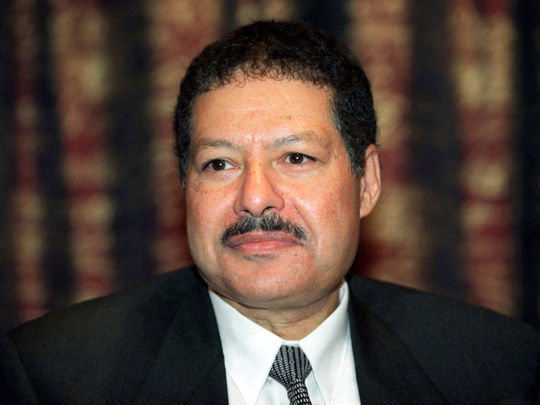
Cairo: The body of Egyptian-American Nobel Prize-winning chemistry wizard Ahmad Zuwail arrived at the Cairo airport on Saturday from the US where he had died earlier in the week.
The body, accompanied by Zuwail’s family, was flown to Egypt from New York aboard an EgyptAir plane, sources at the airport said.
The body was to be transported to a military hospital in the Cairo suburb of Al Tajmuh Al Khames and kept there until Sunday when a military funeral will be held in honour of the late scientist, they added.
Zuwail became the first Arab scientist to win the Nobel Prize in Chemistry in 1999.
Following the win, Egypt’s then president Hosni Mubarak awarded him the Grand Collar of the Nile, the country’s prestigious medal. Recipients of this medal are entitled to military funerals on their death.
Incumbent President Abdul Fattah Al Sissi and other senior state officials are expected to attend Sunday’s funeral, according to Egyptian media.
Zuwail died in California on Tuesday at the age of 70.
He will be buried in a grave in the October 6 City on the western outskirts of the Egyptian capital.
He is known as the father of femtochemistry, a branch of physical chemistry that studies chemical reactions happening in a matter of femtoseconds.
He is also credited with developing a rapid laser technique that has enabled scientists to study the actions of atoms during chemical reactions.
The accomplishment has created a new area of physical chemistry known as femtochemistry.
Zuwail was born in the Egyptian Delta province of Damanhur in 1946.
He obtained his bachelor and master’s degrees in chemistry from the state-run Alexandria University before travelling to the US.
He joined the California Institute of Technology in 1976 and became a US citizen six years later.
In recent years, he frequently visited Egypt where he set up the City of Zuwail for Science and Technology. The institution, which was officially inaugurated in late 2011, has the stated mission of bringing about effective participation in the 21st century research and upgrade local technologies to world standards.
Since his death, state and private television stations have featured extensive programmes on his life, scientific journey and “devotion” to the homeland.












